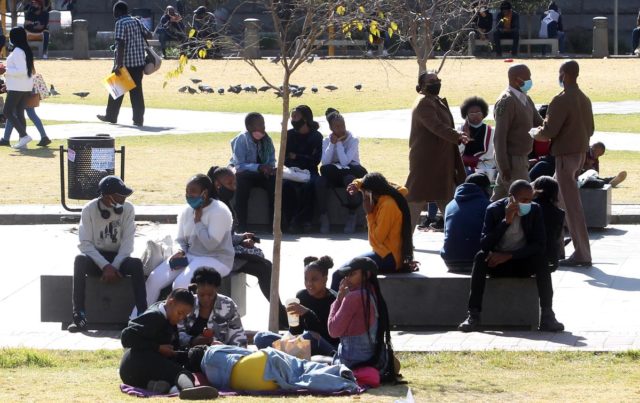
IF THE Covid-19 pandemic and the resultant lockdown regulations have taught us anything, it is that often the seemingly little things in life matter as much as, if not more than, what is considered big.
We have all had to revise our views of people who were considered unskilled workers, such as cleaners, dirt collectors and supermarket workers. We have had to realise that we have not shown enough appreciation to the people whose job it is to look after us and heal us when we are sick.
We have had to think about how we deal with the most vulnerable in our society, including the homeless and people who are forced to live in shacks. As our economy reopens while we are yet to reach the peak of the pandemic, our hearts also go out to those who are forced to return to work – not because they are heroes, but because they have no option but to risk their lives in order to earn enough money to feed their families.
We fear for the thousands, of people who are being crammed into taxis to get to and from their workplaces, knowing that they are at risk but being left with no choice.
We fear for our children and teachers who are being forced to return to overcrowded schools without proper assurances that they will be safe.
A few little things I noticed on a necessary shopping trip kept me thinking this week. Outside one shop, I noticed a young woman leaving without wearing a mask and talking to several people on her way. As she left the shop, I could see in the entrance, the sign that all shoppers had to wear masks and sanitise their hands.
Two children were standing in the doorway of another shop, eating ice cream, with their masks around their chins. They were waiting for their mother, who was shopping inside. We had to walk too close for comfort past them as we left the shop.
Outside another shop, a few workers were enjoying a smoke break – yes, people are still smoking despite the government ban – with no masks (obviously) and no social distancing.
I am mentioning these little incidents because they are indicative of a greater problem, a lack of understanding about how we should deal with the pandemic and our own role in it, which could mean the pandemic will get much worse before it gets better.
There are many people who feel they will not get the virus or they cannot spread it, for whatever reason.
There are others who just don’t care and have had enough of being inconvenienced. South Africans often look at government for leadership when it is possible to take things into our own hands. We saw, for instance, how government was forced to take action when students protested that fees had to fall or when thousands marched against gender-based violence.
We cannot march at the moment, but we can continue to put pressure on government and everyone in society to do their best to contain the virus.
Government seems to have painted themselves into a corner with the level-based lockdown approach to dealing with the virus. It should never have been about what you can or cannot buy under which levels and which businesses are allowed to operate.
It should have been about creating an awareness in society and getting the buy-in of the masses. All our energy should be aimed at making sure that everyone does the little things right: such as staying at home (as much as you can), social distancing, washing hands, sanitising and doing everything in our power to stop the spread.
* Fisher is an independent media professional. Follow him on Twitter @rylandfisher







